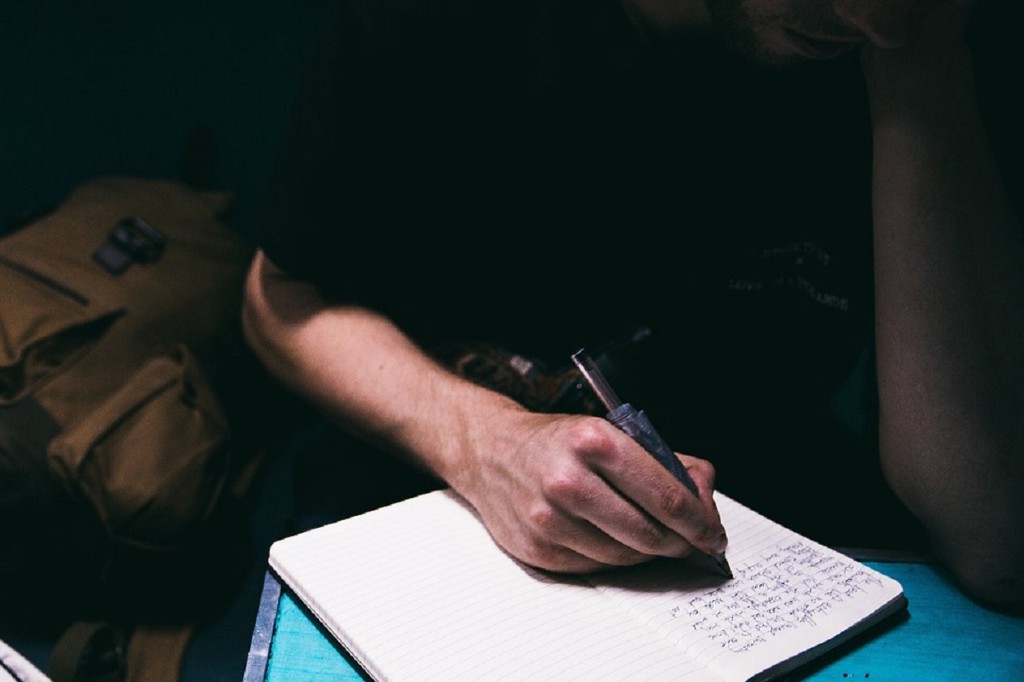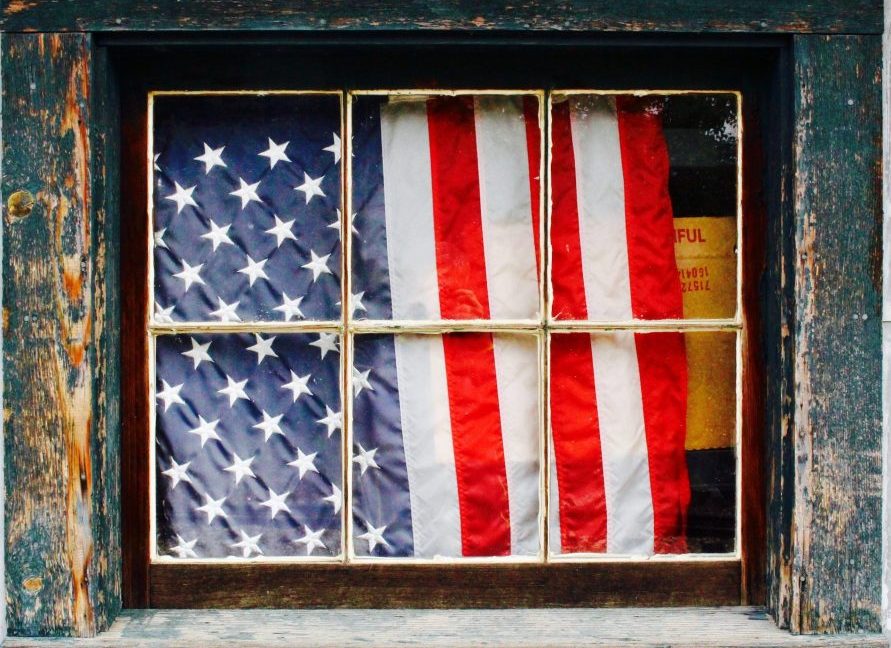interviews
What is the Connection Between Storytelling and Addiction Recovery?
Tom Macher discusses writing his memoir, ‘Halfway,’ and capturing the experience of a Louisiana halfway house

I know a lot of good writers. Most of them are not particularly good storytellers in the “raconteur” sense. This shouldn’t be all that surprising. Most writers lead relatively tame lives. They observe the lives of more interesting people, collecting and augmenting the bits they like in order to create compelling work. Much of the fiction I’ve written has been inspired by actual events, but many of those events happened to other people. My writings are my own; the stories in them, mostly not.

Tom Macher is an exception: a great writer who is also a great storyteller. The happenings he describes are imbued with the illogic of true events. The characters are so unlikely that they can only be real. When Tom tells stories, my writer’s mind inevitably shifts to pilfering mode, squirrelling away images and circumstances for use in my own work. Then I remember that Tom is himself a writer, and that professional courtesy prohibits me from stealing from him the way I do from regular people. His stories, like his writing, belong only to him.
I met Tom at the Fine Arts Work Center in Provincetown last winter, where he had come to finish a memoir about his time in a Louisiana halfway house years before. He was attempting something that I found both treacherous and enviable: telling stories — true stories — about himself, without even the cover of fiction to protect him. That book, Halfway, will be published next week (Scribner), and it’s a remarkable rumination on wrongdoing, fear, and self-creation. I spoke with Tom via email about the tricky nature of truth, and the role of storytelling in his recovery from addiction and the discovery of his voice.

Michael Deagler: Late in the book, the woman who runs the halfway house, Miss A, puts you on Scribes. Scribes is a form of punishment where you have to write in a journal until you reach an epiphany about your behavior. In this case, it was about how sex was an extension of your alcoholism. You sat there writing about it for nine days. You conclude the story noting, “A decade later, Miss A died, but two decades later, I am still writing about this extension.” Do you see your life as a writer as an outgrowth of that sort of exercise?
Tom Macher: I was attracted to stories from an early age and had some encouragement from teachers. I was that kid in the back not paying attention, fucking off, never did any homework, but then there’d be some essay assignment and I’d really grind the fucker out and my teachers would be like, “Where the fuck did this come from?” In high school, I started writing on my own, like a lot of young men, because a girl ran a poetry reading and I wanted to get her attention. I probably looked like a pretty dumb guy at that point. But I composed this poem. I don’t know — maybe my friends helped — and I brought the damn thing down to the poetry reading on whatever day, and again, like with these teachers, when I show up — and mind you, I came with ten or twelve other dudes, all of them very jocular, all of us complete boneheads with our chewing tobacco and backwards hats — everyone is like, “What the fuck is this?” But the poem rhymed! You know, and it had birds and trees in it, wind, earnestness; all the poetic elements you could want.
But on Scribes, you’re sitting in the corner, you’re on No Contact, no one can talk to you, the Group is going on without you — they’re going to Circle K, shooting hoops, talking shit by the weight bench — it sucks, and everything you’re writing is written to get off Scribes. It’s a lot of “act as if,” a lot of “fake it ’til you make it.”
Of course, I’d give a lot for nine days in a corner on No Contact now.
MD: You’re a graduate of the Iowa Writers’ Workshop. Did that feel in any way like an extension or a cousin of AA? I don’t have any experience with 12-step programs, and so maybe this is a facile connection, but there seems to be a connection there. They’re both supposed to be confessional, “safe” spaces where you try to figure out how to tell your own story.
TM: Fuck no. Not AA.
Now, in the halfway house, most of the time, we’re just there for the three hots and a cot. Maybe you figure out you want to live, maybe you don’t. And, hopefully, you’re getting an MFA at a studio program like the Iowa Writers’ Workshop because it affords you time to write. Same thing at the halfway house — it’s all about time, and maybe you figure out the writing life isn’t for you, and cool, whatever. And I see that similarity between writers and junkies: junkies will do anything to score, writers will do anything to write. But I don’t see workshops as being safe; I can’t imagine workshopping some of the stuff in this book — all anyone would talk about is what kind of dick I am. Even if it were straight fiction, the talk would be about what kind of asshole the writer is. That’s not safe. It’s safe, but not safe, right? And that sucks. There’s a weird thing about practicing art in a corporate world, like a university.
I see that similarity between writers and junkies: junkies will do anything to score, writers will do anything to write.
And along those lines, I can’t recommend going into any old meeting and wiping your ugliest boogers like some kind of psychopath.
MD: Relatedly, there are the after-meeting porch sessions at the House, which you talk about a lot in the book, where you and the other guys would just sit around, smoking, shooting the shit, trying to one-up each other with stories from your previous lives. What’s the link between those moments and writing?
TM: Back in middle and elementary school, I ran around with a pack of kids, five or ten of us, all boys. We’d rampage around, doing shit. Setting shit on fire was popular. Fist fights. We broke into houses. Vandalized things. We were savages. And you’d think, well, some of this stuff ought to be kept under wraps, you know, “loose lips sink ships” and all that, but the secondary joy of these behaviors was bragging about our adventures in the cafeteria the next day, or whatnot. Now, much later, like in my twenties, when I was adrift, uneducated, working in bars and restaurants and construction, I thought a lot about what I really loved doing, and I realized it was this secondary joy: I loved telling stories, and how could I go about doing this?
MD: How did you navigate sharing the stories of these other guys from the House, going into their backstories? I would imagine it can be tricky writing about things that happened in an environment like that, since there’s a sort of presumed confidentiality to what gets said.
TM: Ugh. I don’t know. There’s a lot of chicanery involved so that no one gets outed as “that guy.” But look, if you tell me you got assaulted walking down such-and-such road, it’s going to color the way I view that road. I may never walk down it again. I may walk down it more. And that’s how most this stuff is working.
But I haven’t always felt good about telling these things. In fact, I’ve felt pretty shitty about it. There’s a bitter arc to a lot of my characters. You’re looking at guys who are dead, homeless, in prison, most of the time. Most of us aren’t in touch, unless something happens, like someone dies. And relaying that kind of information sucks. And then, I’m thinking about this friend of mine who died, and I want to write about him, but I don’t want to step on his grave — I don’t want to leave out the bad stuff of him, but I don’t want to dwell on that bad side of him either.
So, it has troubled me. But then, late in the publication process, like the day before I turned in my final-final pages, when I knew there’d be no more changes, someone texted me a link to a newspaper. One of the dudes from the House, a guy I lived with, had been booked for allegedly committing a life-crime. I got a few other texts that day. One guy texted me a photo of us standing in the trailer park where we after being released, all of us looking decidedly uncool. This photo, you got to understand: no one had an iPhone in those days, we weren’t carrying cameras. Any photograph was treated like hard currency — all our existing photos were stolen repeatedly. And I’m wondering, who the fuck did you steal this photo from? Where has it been all these years? And this guy, this photo-hoarder, tells me he’s stolen a bunch of these photos, and, all day at work, he’s been distracted, looking at the photos. And maybe it’s grandiose, but I take solace in knowing that I’m not the only one still affected by that time in our lives.
Double Take: Scott McClanahan’s ‘The Sarah Book’ is Beautifully Told and Breathtaking
MD: You write, late in the book, “A difference had come to exist for me in the way I viewed this whole thing: what happened wasn’t as important as the truth of a thing.” How does that play itself out in a memoir, specifically? It reminds me a bit of Tim O’Brien’s thoughts on how a war story operates in The Things They Carried. But that’s a work of fiction, where the reader isn’t expecting the truth.
TM: Well, it’s a mindfuck. Like who wrote the “nonfiction” thing matters. Who edited it. Ditto the documentary, right. Who finances the fucker matters, a lot. I don’t expect any more “truth” from a memoir than I do fiction. Not to knock memoir as a form, but it’s one person’s account of a time in their own life, which, even if they’re miraculously objective and have gone through oodles of soul-searching, filters it in a certain way. And what about the tinkering they’ve done with the details? What about the sorting? I mean, I wasn’t carrying a notebook or voice-recorder in these homes. I wasn’t running back to my bunk to write this stuff down.
I don’t see workshops as being safe; I can’t imagine workshopping some of the stuff in this book — all anyone would talk about is what kind of dick I am.
Going back to the above question about sharing stories of other guys in the house. God knows what my father would say if you asked his version of our interactions. And the brothers at the halfway house — I’m hoping they’ll just laugh at me. But I can see them being pissed off, especially for what the confinement of 275 pages has forced me to leave out. How could I not talk about so-and-so, or such-and-such? And I’m sorry about that, but some good stuff just felt too weighty for this story. The heaviness of those things, the shit I left out, would change the story. By the end of writing Halfway, I’d cut most my meta-BS — there’s no more time for my dumb smoke and innuendo and tricks, I’m not trying to be cute — I just want to tell the story. And in that moment in my life we’re talking about, where I’m a kid, I’ve never lost a house or marriage or fucked up my career or even had a car repo’d. In other words, before I had anything to lose, I got to apply this thinking to myself all the same, listening to this dude tell me a story about how he killed some dude in cold blood, and decide if the specifics within a truth matter or not. Like, that’s his creation story. It doesn’t matter the meat of the story. Shit happened enough to spur him to action.
MD: This book primarily focuses on you from the ages of roughly 17 to 21. During the writing process, I’d imagine you’d to get back into that headspace in order figure out your motivations and emotional state at various times. Was that difficult? You had to remember not just how an 18-year-old thinks, but how an 18-year-old addict thinks.
TM: Right. It was hard to reconcile the desires I had then with my actions at the time. It’s hard not to poke fun at my young self. Not for what I wanted, but for my attempts to achieve these goals. That’s pretty typical shit, though, regardless of age: actions are going to tell us more than anything. And I get so breezy sometimes, writing. Like, fuck no, I wasn’t thinking about anything but taking that person’s money, and most readers, I think, want a little more to hold onto than “fuck-kill-kill-fuck.” Drafting the book, I was often too oblique, or I got in the way of the story. Even after boiling it down to essential actions, I’d come back and clog it up with the over-explained or opaque, end up with the same old drafty shit, full of nonsense, all of it hindsight, too many flash forwards, and this more-aged-me prescribing wisdom from on high some twenty years later. Fortunately, my editor at the time, Shannon Welch, was like, “You got to cut all this psychobabble shit out.”
Things change, but they don’t. We move from one world into another, but we don’t fit in.
MD: There’s a long chapter toward the end of the book where you tell some stories from adventures post-House with some of the other alumni. The frame of the chapter is that you have told these stories before at a dinner party, and your bourgeois audience was sort of horrified by them. The publication of this book for a literary audience is a similar scenario on a larger scale. Has your strategy for telling these stories changed at all? Are you still concerned with people’s reactions?
TM: Specific to your garden variety dinner party, I can tell you this: I’m more about the hot-buttered rolls these days, that’s for sure. Like, oh, is there more to eat? Is there a slice of cheese? Is there something I can shove in my mouth that will prevent me from saying something stupid?
The chapter is problematic. The story framing that chapter is problematic. What can I do about that, though? If I’m going to cut that kind of thing from the book, what am I doing? What story am I trying to tell? Right, cause it’s near the end. So there’s this mad arc, a dash toward redemption, and then this. And what do we make of this? How can we understand this arc with this penultimate moment? The reader, at that point, wants to like me, wants to like “Hair-pie, Nob, Wood,” etc., but then there’s this problematic thing. But it’s my story. And I guess what it comes down to is, what am I supposed to say? Things change, but they don’t. We move from one world into another, but we don’t fit in.
MD: There’s an idea about writers who are recovering addicts that goes, “Writing saved my life.” That it’s a sort of positive addiction that fills the hole. Do you subscribe to that? What is writing, to you?
TM: Lots of things fill the hole — playing basketball, eating, any kind of work — but, yeah, writing is the one positive thing I’ve found that turns me on as much as self-destruction. I wouldn’t say it saved my life back in the day. Showing up saved my life, asking for help, giving up, changing my behavior, stuff like that, but, in the years that followed, I certainly have a different outlook on life when invested in a project and writing regularly than when I’m just picking the lint out of my navel. Writing gets me up in the morning. It helps me sleep at night. It’s something that genuinely excites me.
That Thing: A True Story Based on The Exorcist
MD: Were there any specific books or authors you were thinking about when putting this book together? I know Jesus’ Son by Denis Johnson and Rock Springs by Richard Ford have been important to you, and I see some of that heritage in the writing. Who else?
TM: Well, there are writers from then and writers from now. And I usually forget about the ones from then. Here’s how dumb I am: once, I ran into Tobias Wolff in a restroom. We’re both washing our hands and we make eye contact in the mirror. I say, “You were so fucking important to me when I was sixteen.” What a dork, huh? It’s not like I was eighteen saying this. I was thirty-three! I can imagine him being like, “Who the fuck are you — sixteen years old!” But he really was! And Kerouac. Fuck me. I loved Keruoac and I fuck with it a bit in the book. There’s a shout-out in there, maybe two. But I learned from the whole Wolff incident, and I didn’t go all willy-nilly with my Keruoac shout-outs. I worked those things into the book. Many, many drafts went into those moments.
I read a shit-ton of Joan Didion, especially when I first started working on this book. Joan Didion all the time. All her shit blows my mind. Roberto Bolaño. Michael Herr. I had a very hard time writing the procedural shit for the House. I really wanted to cram a bunch of information into the reader’s mind there, a shit-ton of characters. In Dispatches, Herr relentlessly hammers away at details, soldiers come in and out of focus, we never quite grasp one of them for very long, but it doesn’t matter: they all exist under the same umbrella, offer different versions of each other, echoes. I re-read Tony Swofford’s Jarhead — it’s a fucking great memoir, obviously, and he’s so good at explaining what’s commonplace to him to someone for whom these things might not be normal.
Now, what’s on my nightstand: John McPhee, Jenny Zhang, Marlon James.
MD: It can be hard to be a writer without a book. People don’t take you as seriously. You’ve been a writer without a book for a long time. Would you have done everything differently, if you could start over? Just in terms of your writing career. Do you think you could have gotten to this point quicker? Do you wish you had?
TM: As much as I would’ve liked a check somewhere along the way, the act of writing has always been the thing that drives me. And I’m thinking back now, and I’m looking at it like this: when I’m twenty-five years old, I’m sleeping on couches, in my car. My car is parked on the side of a state highway in Louisiana or Texas or in a gas station parking lot in New Mexico or on a tree-lined street in Los Angeles. I don’t have a computer, no typewriter, no education. But I know I want to tell stories. That’s it. I don’t care about seeing my books on bookshelves or a review of my book in any newspaper. I just want to tell stories. Some story. One I’d want to read.
The stuff I write is on bar napkins, in emails, on takeout menus, and it’s not even stories, just words. Like some reminder. It took me four years to even write a proper short story. Four years. And I’m trying that whole time. I’m not sitting on my hands. I’m fucking grinding. But I like grinding. And my life, post-Iowa, post-post-graduate fellowships, when you’d think maybe I’d publish something, in these years, when I’m still unpublished, I’m working in restaurants and bars, playing basketball when I can, and stacking pages. Which is a pretty decent life. I mean, when your big complaint is that no one over six foot three comes out to ball on the court at Keswick & 33rd until after five 5 p.m., that’s “the good life.” I get it: you might not make for the best mating partner, but you’re living fat. Your parents might not take you seriously, but life is good. But these people, you know, with their sidelong glances — whatever. Writing without worrying about what anyone else thinks about your work is a tremendous gift. I’m fortunate that I’ve gotten to do that for a long time.








